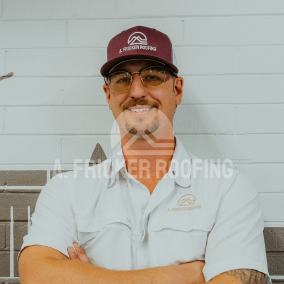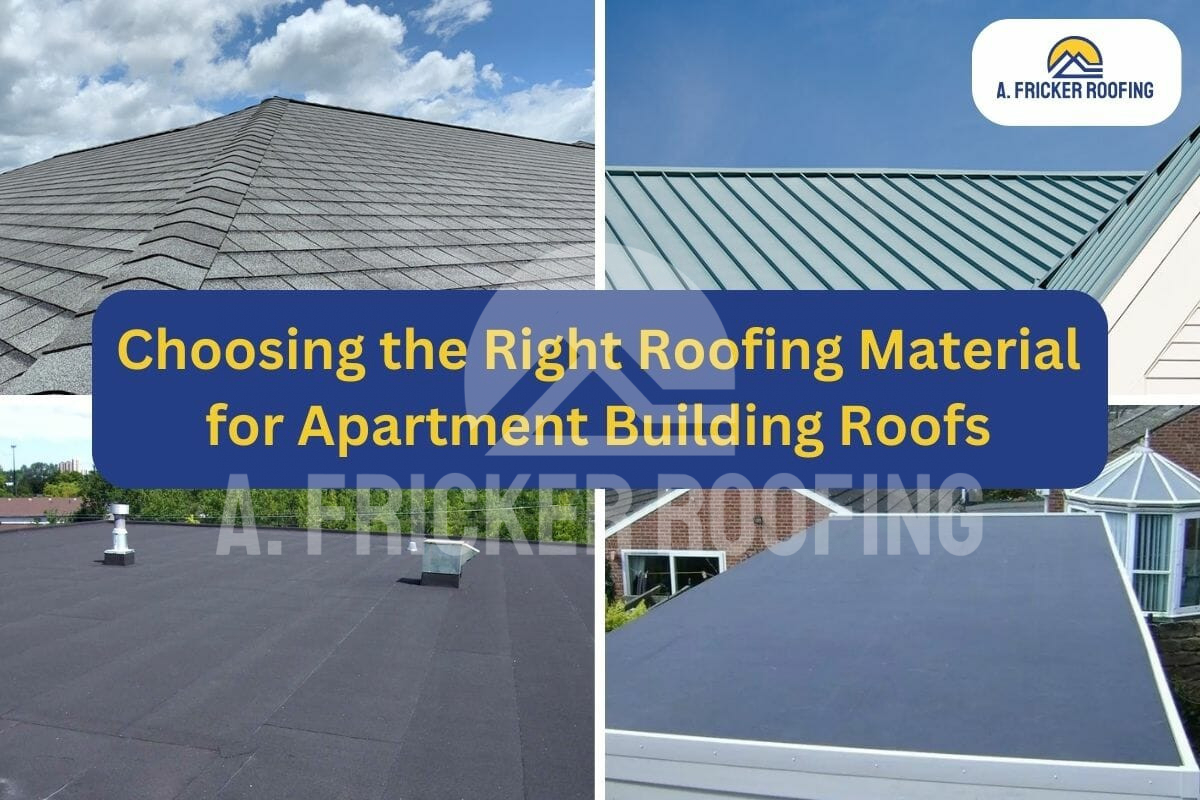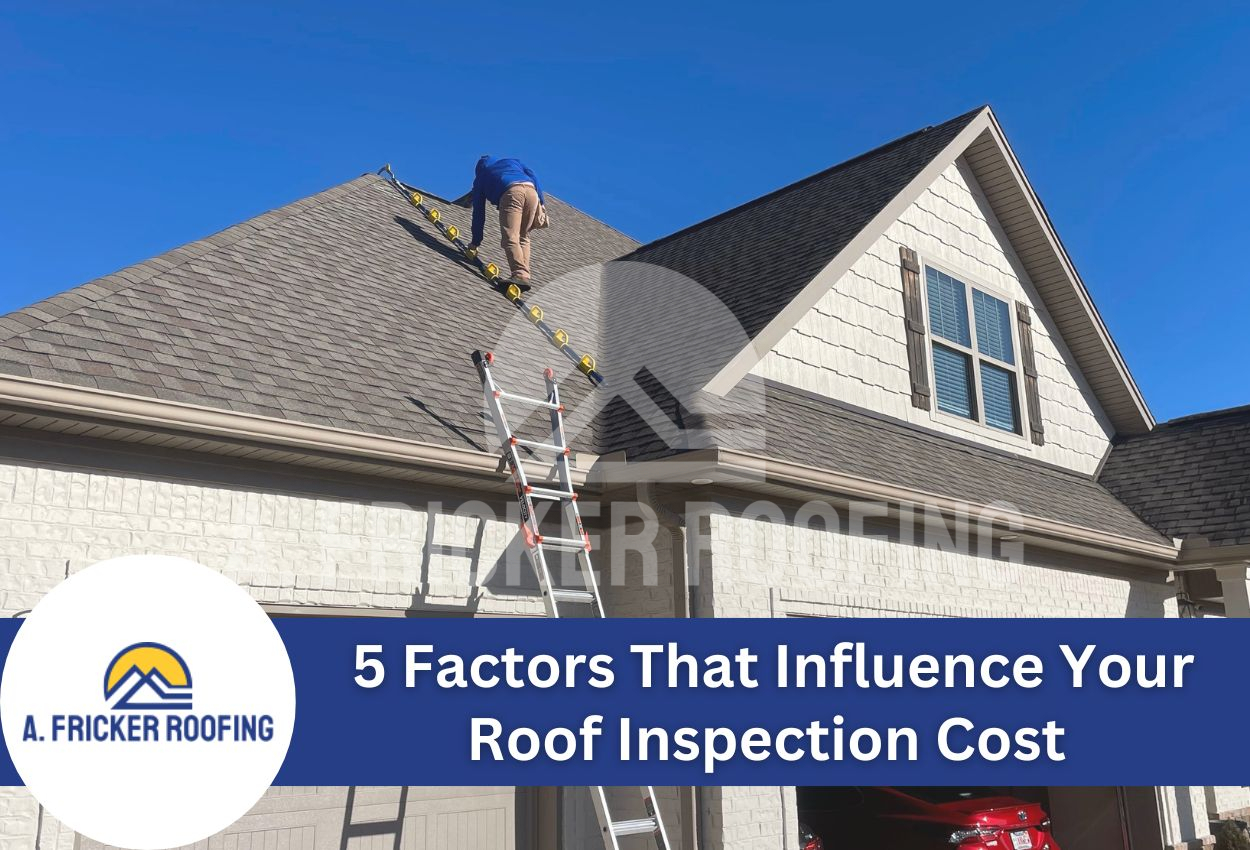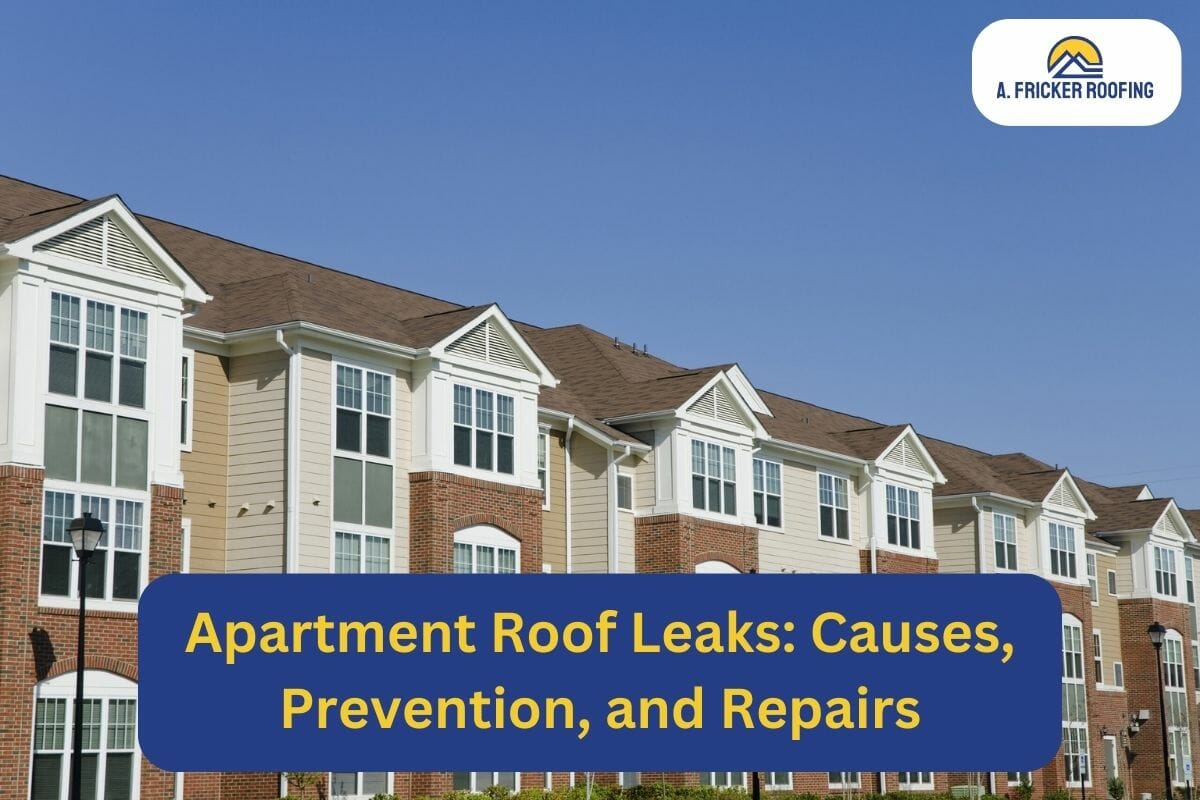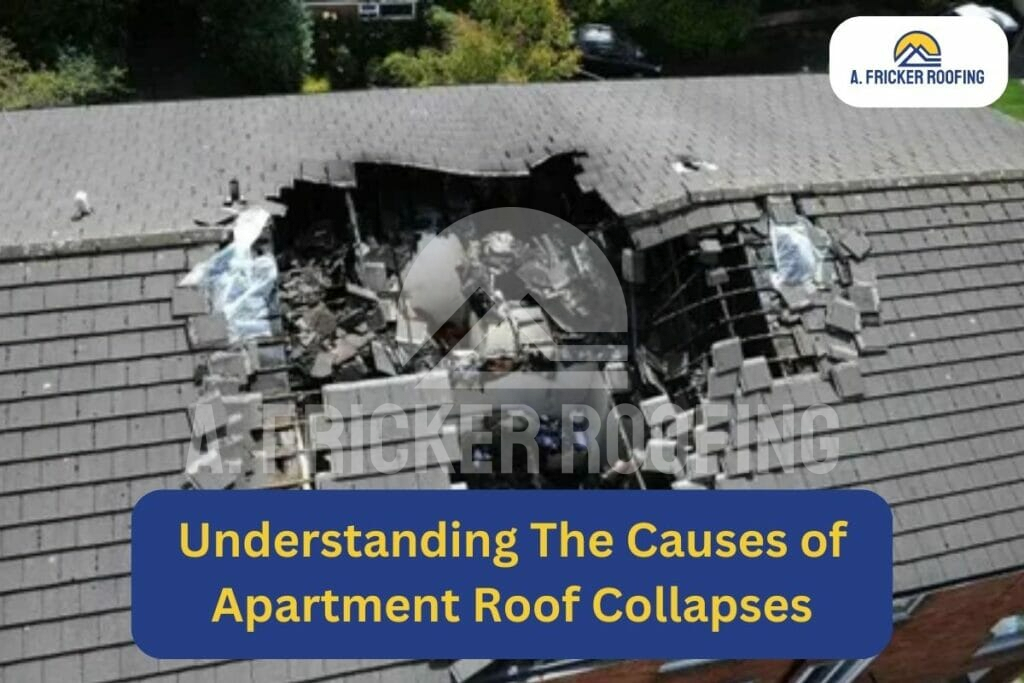
The roof of your apartment building is its first line of defense against the elements. It provides shelter and safety for you and your fellow residents. However, like any structure, apartment roofs can deteriorate over time, potentially leading to a complete collapse. Identifying warning signs early is crucial for the safety of everyone in the building. In this guide, we’ll explore some telltale signs that your apartment roof may be at risk of collapse.
Signs An Apartment Roof Is Going To Collapse
1. Sagging or Bowing
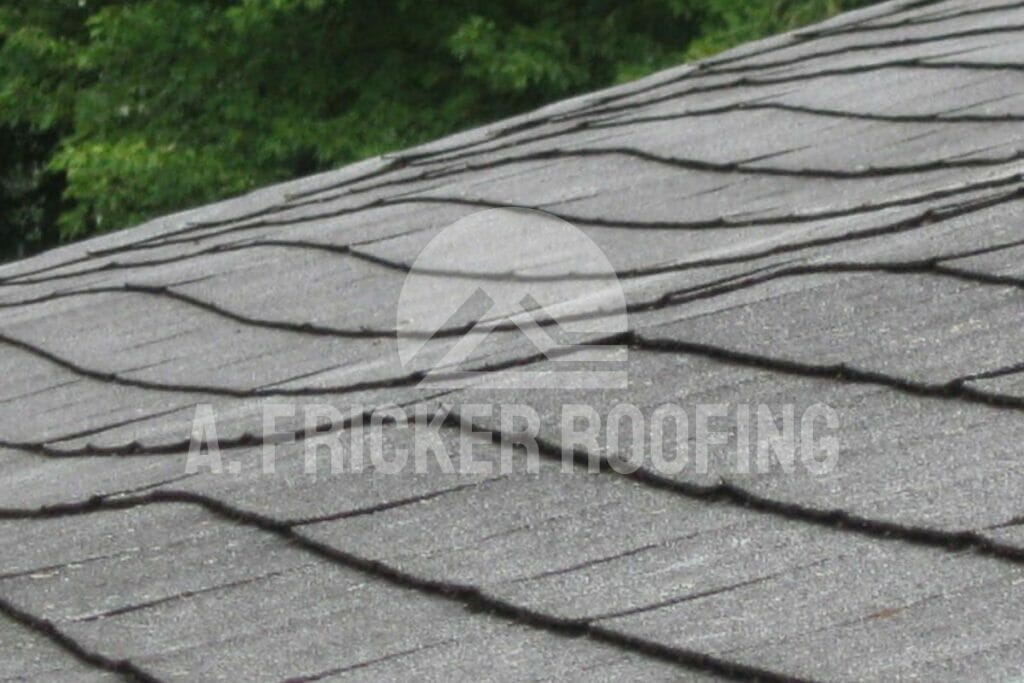
One of the most apparent signs of a roof ready to collapse is sagging or bowing. When the roof structure starts to weaken due to excessive weight, foot traffic, or ponding water, it can cause the roofline to dip in the middle or create visible deformities. If you notice such irregularities in your apartment building roof, it’s a clear indicator you need to take immediate action.
2. Cracks or Splitting in Roof Materials
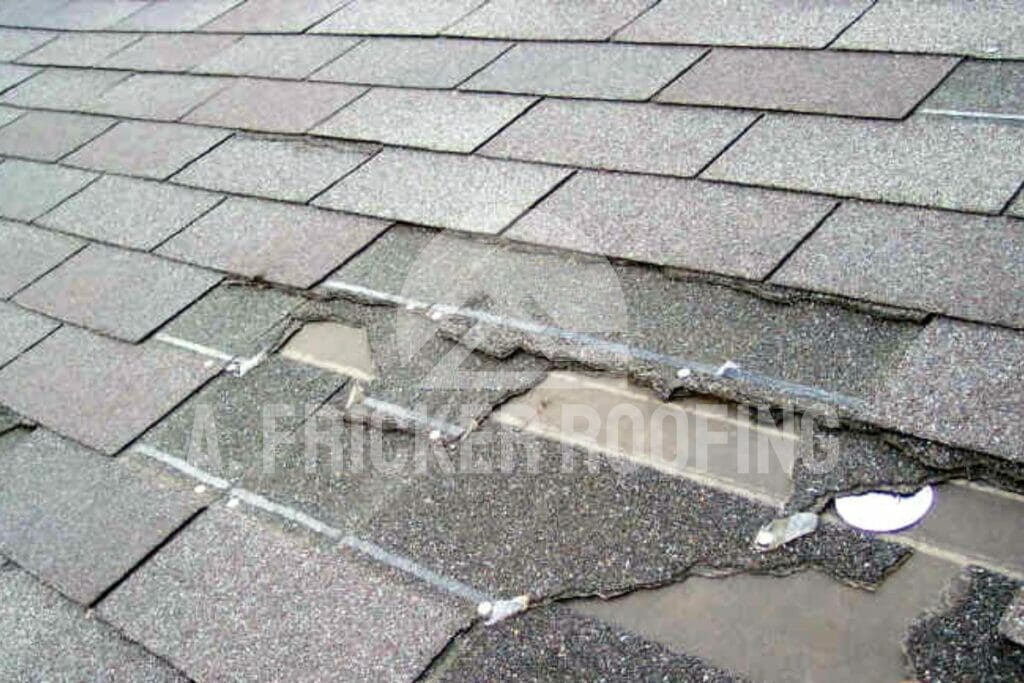
Examine the surface of the roof carefully. Cracks, splits, or punctures in roofing materials, such as shingles, tiles, or membranes, can be a sign your apartment building is going to collapse. These openings can allow water to infiltrate, which further weakens the structure and can potentially lead to a collapse.
3. Water Stains and Leaks
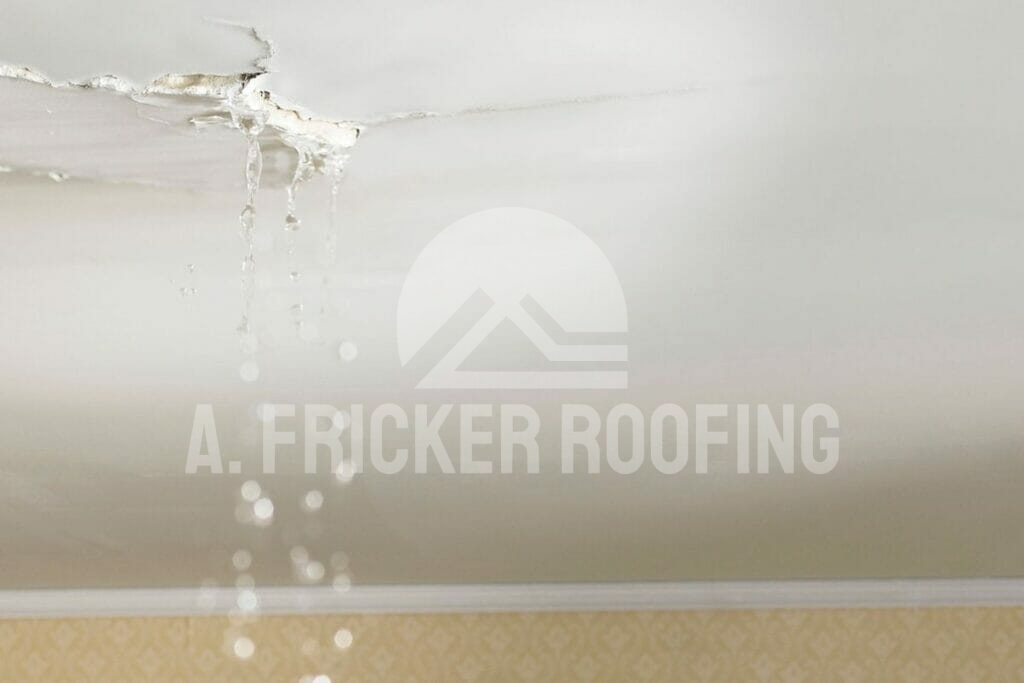
Water stains on ceilings or walls within your apartment are a sure sign of trouble, as they indicate a leaky roof. Persistent leaks can weaken the roof’s structural components over time, potentially causing a collapse. You shouldn’t ignore leaks, no matter how small or seemingly harmless.
4. Noticeable Roof Material Deterioration
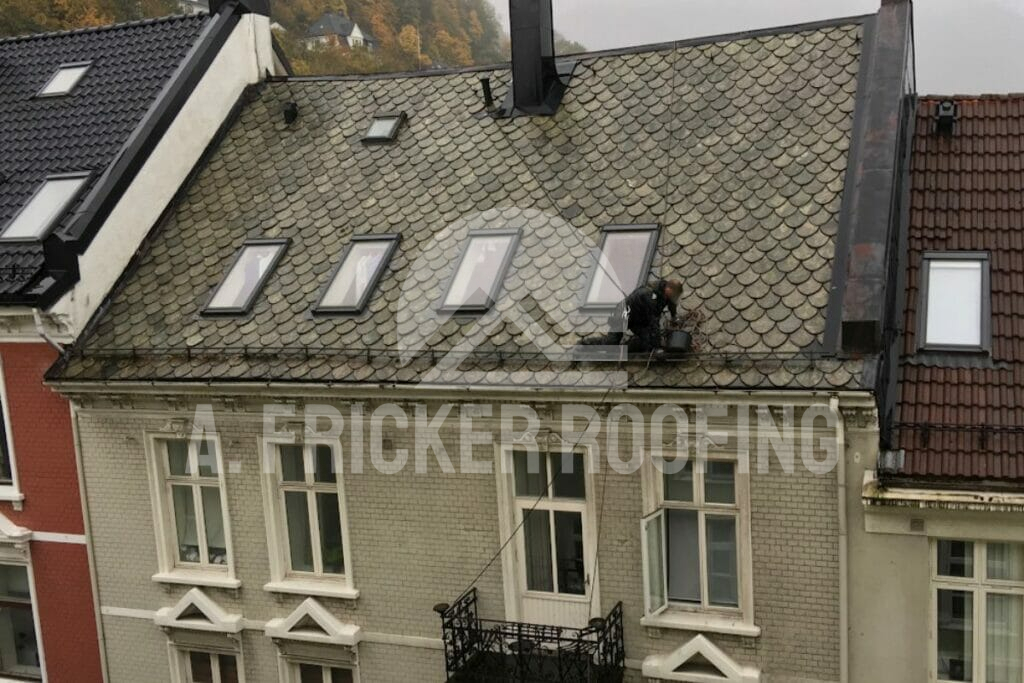
The condition of your roof’s materials matters. If you see signs of aging, like brittle or missing shingles, it’s a warning sign. Roofing materials or shingles don’t easily blow off the roof unless the condition has worsened. They are designed to withstand the elements, and when they begin to degrade, it’s a sign that the roof may be compromised.
What Causes An Apartment Roof To Collapse
1. Structural Integrity
The foundation of any building’s safety is its structural integrity. When it comes to apartment roofs, several structural components play a vital role in supporting the weight and ensuring stability.
A. Load-Bearing Capacity
One of the primary factors in roof collapse risk assessment is the load-bearing capacity of the roofing structure. This capacity is determined during the design and construction phases, considering factors such as the type of materials used, building codes, and intended use of the roof. Overloading the roof with heavy equipment, excessive snow, or unauthorized construction can strain its capacity and lead to collapse.
B. Age and Wear
Over time, the structural components of an apartment roof can deteriorate due to wear and tear. This is particularly true for older buildings. Regular inspections and maintenance are essential to identify and address structural issues before they become severe enough to compromise the roof’s integrity.
2. Environmental Factors
Nature can be unpredictable, and various environmental factors can contribute to roof collapses.
A. Snow Accumulation
In regions with heavy snowfall, the weight of accumulated snow on a roof can pose a significant risk. The load from snow can exceed the roof’s capacity, which leads to deformation and, in extreme cases, collapse. Therefore, regular snow removal or reinforcement of the roof’s structure is necessary in such areas.
B. Rain and Water Damage
Persistent leaks and water damage can weaken the structural elements of a roof over time. This is a common issue that should not be underestimated. Regular inspections to detect and repair leaks promptly are essential to prevent long-term damage.
If your apartment roof is leaking, read our extensive blog post: Apartment Roof Leaks: Causes, Prevention, and Repairs.
C. Extreme Weather Events
Severe weather events, such as hurricanes, tornadoes, and earthquakes, can put immense stress on an apartment roof. Buildings in regions prone to these events must adhere to construction standards and local building codes. Implementing construction codes helps apartment roofs to withstand the forces of nature.
3. Maintenance and Inspection
Preventive maintenance and regular inspections are the keys to identifying and addressing potential roof collapse risks. Avoiding maintenance and roof inspection can result in extensive repairs or, in some cases, complete roof replacement. Regular inspections help identify the signs of potential problems and allow you to maintain the roof before major repairs are needed.
A. Routine Inspections
Professional inspections should be conducted regularly to assess the condition of the roof and its supporting structures. Any signs of damage, deterioration, or structural weakness must be addressed promptly.
B. Maintenance Protocols
Developing and following a maintenance protocol is essential to extend the life of the roof and prevent accidents. This includes cleaning gutters, repairing leaks, and ensuring that rooftop equipment is properly secured.
4. Human Error and Negligence
Sometimes, human actions or negligence can directly contribute to apartment roof collapses.
A. Unauthorized Modifications or Adding Weight
Unauthorized modifications or additions to the rooftop, such as the installation of heavy equipment without proper reinforcement, can significantly increase the risk of collapse.
B. Poor Construction Practices
During construction, shortcuts or poor workmanship can compromise the roof’s integrity. This often happens if you hire unskilled and unprofessional roofers. Unqualified and immature roofers put entire buildings at risk. Therefore, it’s imperative to hire reputable contractors who adhere to industry standards and building codes.
Also Read: The Complete Guide To Apartment Roof Replacement: Costs And Considerations.
An Emergency Procedure For Apartment Roof Collapse
In the event that your apartment roof collapses, follow these steps to ensure everyone’s safety.
1. Evacuation
Prioritize Safety: Above all else, ensure the safety of all residents. Immediately initiate the evacuation process when you realize the apartment roof is at risk of collapsing. A roof collapse is a hazardous situation and it may create a fearful and anxious environment within the apartment. So make sure to use clear and concise communication to convey the urgency of the situation.
2. Isolate Hazard Zones
Restrict Access: Use caution tape, cones, or barriers to draw attention to the compromised area. Prevent residents and onlookers from approaching the dangerous section of the building to avoid potential injuries.
3. Contact Emergency Services
Call 911: Contact emergency services without delay to report the risk of roof collapse. Provide precise details about the condition of the roof, the number of residents affected, and any immediate hazards. Cooperate fully with emergency responders.
4. Document Damage
Capture Evidence: While ensuring safety, document the extent of the damage thoroughly. Take clear photos and videos from a safe distance to preserve visual evidence of the roof’s condition. This documentation will be valuable for insurance claims and future assessments.
5. Relocate Residents
Secure Temporary Housing: If possible, arrange temporary housing for displaced residents in safe locations, such as hotels, community centers, or emergency shelters. Ensure that all residents have a safe place to stay during the crisis.
6. Alert Neighbors
Notify Nearby Buildings: Inform neighboring buildings and residents about the situation to make them aware of potential risks. Roof collapses can sometimes affect adjacent properties, so it’s essential to alert others to the possible danger.
7. Secure Essential Documents
Retrieve Important Documents: If conditions permit, retrieve essential documents from the building, including leases, tenant agreements, and contact information for all residents. These documents may be required for insurance claims and future communication.
8. Engage With Professional Roofers
Contact Roofing Experts: Reach out to professional roofing contractors or structural engineers with experience in emergency situations. They will assess the damage, determine the extent of the problem, and recommend immediate measures to prevent further collapse.
9. Temporary Roof Support
Stabilize The Roof: Depending on the severity of the situation, consider implementing temporary roof support or shoring. These support structures should only be installed by experienced professionals who understand the nuances of emergency structural reinforcement.
Final Thoughts
In conclusion, understanding the causes of apartment roof collapse is essential for property owners, managers, and residents. By prioritizing structural integrity, addressing environmental factors, implementing rigorous maintenance and inspection protocols, and preventing human errors, we can significantly reduce the risk of roof collapses. Your apartment building’s safety and the well-being of its occupants depend on proactive measures to ensure a sturdy and reliable roof.
Contact Your Local Roofing Contractor In Case of Apartment Roof Collapse In Tulsa, OK
If you see signs of apartment roof collapse in Tulsa, OK, contacting your local area roofing contractor is the right choice. In case of emergencies like an apartment roof collapse, no one can help you better in the aftermath than an experienced and local roofing contractor. Contact A. Fricker Roofing and Waterproofing at (918) 402-7167 to consult with an experienced roofing contractor.
The roofers at the company are experienced in handling all your roofing needs, including emergency roof services in Tulsa, OK. We know how chaotic things can be when there’s an emergency with the roof of your apartment building. So don’t wait, contact us today!
